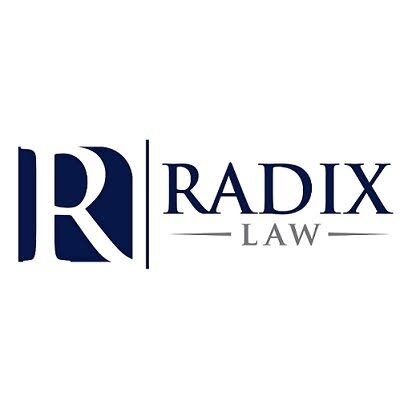Best Securities Lawyers in Scottsdale
Share your needs with us, get contacted by law firms.
Free. Takes 2 min.
List of the best lawyers in Scottsdale, United States
About Securities Law in Scottsdale, United States
Securities law in Scottsdale, United States governs the issuance and trading of securities, which include stocks, bonds, and other financial instruments. These laws are designed to protect investors and ensure fair and transparent markets. Securities law covers a wide range of regulations at both the federal and state levels.
Why You May Need a Lawyer
There are various situations where you may need a lawyer specializing in securities law, such as:
- Investment fraud or misconduct
- Regulatory compliance issues
- Disputes with brokers or investment advisors
- Securities arbitration or litigation
Local Laws Overview
In Scottsdale, United States, securities laws are primarily governed by federal regulations enforced by the Securities and Exchange Commission (SEC). Local laws may also include state-level regulations, such as those enforced by the Arizona Corporation Commission. It's important to be aware of both federal and state laws when dealing with securities in Scottsdale.
Frequently Asked Questions
1. What is a security?
A security is a financial instrument that represents ownership in a company or debt owed by a company. Common types of securities include stocks, bonds, and mutual funds.
2. How do I file a complaint against a broker or investment advisor?
You can file a complaint with the SEC or the Financial Industry Regulatory Authority (FINRA) if you believe a broker or investment advisor has engaged in misconduct. A securities lawyer can help you through the process.
3. What is insider trading?
Insider trading refers to buying or selling securities based on non-public information. This practice is illegal and can result in criminal prosecution.
4. What is the Securities Act of 1933?
The Securities Act of 1933 is a federal law that regulates the issuance of new securities. It requires companies to disclose information to investors and prohibits fraud in the sale of securities.
5. Can I represent myself in securities arbitration?
While you have the right to represent yourself in securities arbitration, it's highly recommended to hire a securities lawyer who understands the complexities of the process and can advocate for your rights.
6. How can I verify if an investment opportunity is legitimate?
You can check the registration status of the investment offering with the SEC or state securities regulators. Additionally, conduct thorough due diligence and seek advice from a securities lawyer before making any investment decisions.
7. What remedies are available in securities litigation?
In securities litigation, remedies may include monetary damages, rescission of a transaction, injunctive relief, and other forms of legal relief depending on the nature of the case.
8. What are the potential penalties for violating securities laws?
Individuals or companies found guilty of violating securities laws may face civil penalties, criminal charges, fines, imprisonment, and other sanctions imposed by regulatory authorities.
9. How do I report securities fraud?
You can report securities fraud to the SEC through their online complaint form or by contacting the SEC's Office of the Whistleblower. You may also seek legal advice from a securities lawyer to guide you through the process.
10. How can I stay informed about changes in securities regulations?
To stay informed about changes in securities regulations, you can subscribe to updates from the SEC, read industry publications, attend seminars or webinars on securities law, and consult with a securities lawyer who keeps abreast of legal developments.
Additional Resources
For more information on securities laws and regulations in Scottsdale, United States, you can visit the Securities and Exchange Commission (SEC) website, the Arizona Corporation Commission website, and seek guidance from local bar associations or legal aid organizations specializing in securities law.
Next Steps
If you require legal assistance in securities matters in Scottsdale, United States, it's essential to consult with a qualified securities lawyer who can assess your situation, provide personalized advice, and represent your interests effectively. Take the necessary steps to protect your investments and ensure compliance with securities laws to safeguard your financial future.
Lawzana helps you find the best lawyers and law firms in Scottsdale through a curated and pre-screened list of qualified legal professionals. Our platform offers rankings and detailed profiles of attorneys and law firms, allowing you to compare based on practice areas, including Securities, experience, and client feedback.
Each profile includes a description of the firm's areas of practice, client reviews, team members and partners, year of establishment, spoken languages, office locations, contact information, social media presence, and any published articles or resources. Most firms on our platform speak English and are experienced in both local and international legal matters.
Get a quote from top-rated law firms in Scottsdale, United States — quickly, securely, and without unnecessary hassle.
Disclaimer:
The information provided on this page is for general informational purposes only and does not constitute legal advice. While we strive to ensure the accuracy and relevance of the content, legal information may change over time, and interpretations of the law can vary. You should always consult with a qualified legal professional for advice specific to your situation.
We disclaim all liability for actions taken or not taken based on the content of this page. If you believe any information is incorrect or outdated, please contact us, and we will review and update it where appropriate.








